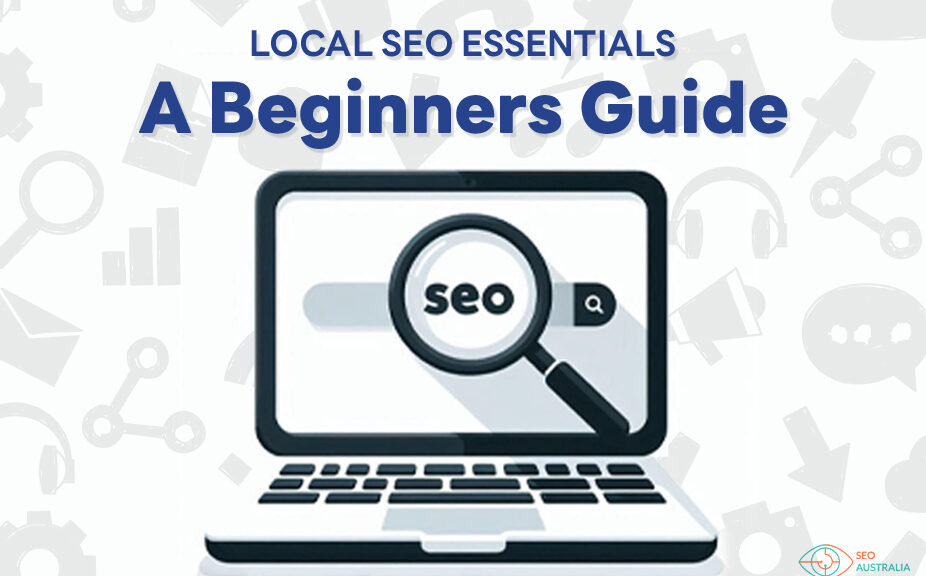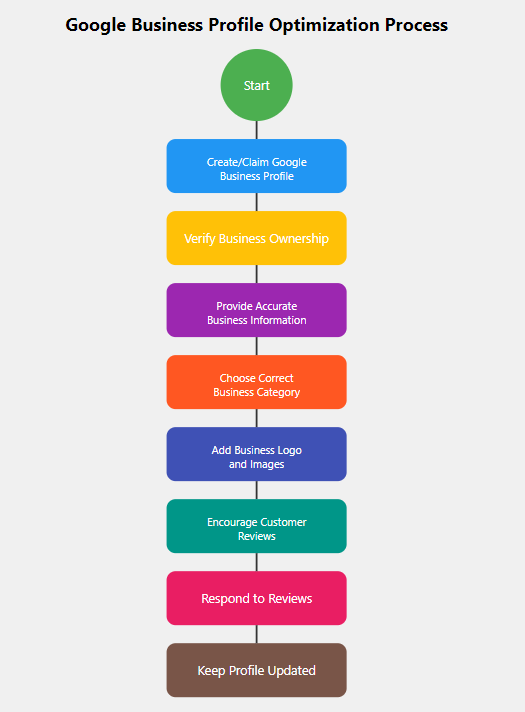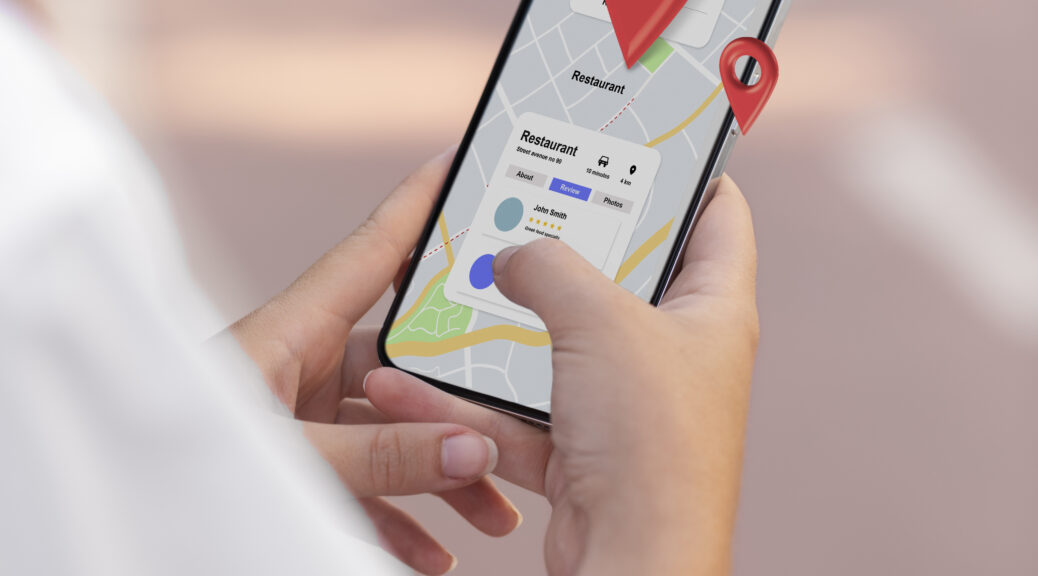Local SEO Essentials: A Beginners Guide
Imagine the ease of finding your business at the top of Google Maps when someone in your locality searches for services or products you offer. That’s the power of local SEO, a strategy that enables businesses to rank higher in local search queries, be that in local map packs in SERPs or in Google/Apple/Bing Maps. Local SEO is crucial because it aligns with the immediate needs of searchers, providing visibility to brick-and-mortar businesses in an increasingly online world.
This guide will commence by equipping you with knowledge about conducting local keyword research, emphasizing the importance of finding terms that resonate with your nearby audience. Following sections will guide you through optimizing your Google Business Profile, utilizing powerful local SEO tools, refining on-page SEO strategies for localization, building backlinks from influential local websites, leveraging citations, and finally, monitoring your progress to hone your local SEO tactics continually. Welcome to your journey towards becoming a local SEO connoisseur.
What is local SEO and why is it important?
Local SEO, or search engine optimization, focuses on boosting a business’s online presence to draw more customers from local searches on platforms like Google. It’s crucial for businesses to be found in these searches, as 30% of mobile queries are location-related, and 78% of those local searches result in a physical store visit within a day.
This form of SEO is especially vital for businesses with a physical location, like stores and service providers, since it helps them appear in prominent spots in location-based results, such as Google or Bing Search and Google Maps. Such visibility is critical, as evidenced during the Covid-19 pandemic when 56% of consumers turned to local stores for their shopping needs.
Participating in local SEO means tapping into the billions of local search outcomes Google generates monthly. It’s about connecting with potential customers who conduct online research before making purchases. By making local SEO a part from your overall SEO strategy, you cater to high-intent search queries and ensure that your business is just a click away from happy customers ready to visit your physical location or engage with your services.
Conduct local keyword research
Conducting local keyword research is a fundamental step in a local SEO strategy. This process entails identifying the specific keywords and phrases that your potential customers use when they’re searching for products or services in your region. By pinpointing these terms, business owners can better understand how to tailor their content and SEO efforts to meet the search intent of customers.
Using SEO tools like KeywordsFX, KeywordTool, and Ahrefs can offer invaluable data, including insights about monthly search volume, cost per click, and the competitiveness of certain keywords. However, it isn’t enough to simply gather a random list of keywords; you need to select words and phrases that hold the most value for your business, aligning with the relevant search queries your potential customers are using. Hot Tip: Filter your competition by Local Pack SERP features in Ahrefs to get a list of queries people search related to you.
Long-tail keywords, which commonly contain three or more words, are typically recommended. The reason is that these keywords are more specific and often have lower competition, which can make them easier to rank for in search rankings. Additionally, they also tend to be more in line with Voice search and AI searches.
Determine the terms and phrases your target audience is using to search for local businesses
Remember, local SEO keyword research is not a one-time task; it’s a continual process of fine-tuning. While it starts with a thorough analysis to establish a baseline, maintaining a sharp and updated list of keywords is necessary to remain relevant and search-worthy in the eyes of potential customers and search engines. Consider current events and news to stay ahead.
When it comes to query semantics there should always be a close semantic relation between your chosen terms and your overall site N-grams. In other words, do not target keywords that are not really related.
Use keyword research tools to find local keywords with high search volume and low competition
Once you’re set to uncover local keywords, it’s important to balance high search volume with low competition. Tools such as Google AdWords Keyword Planner are designed for this very purpose. Such tools assist in filtering through countless keyword options to reveal the ones most likely to return local traffic without putting you in an uphill battle against too many competitors.
Moreover, don’t underestimate the value of geo-specific tools like Semrush, which can pinpoint localized search terms based on user location. This can make a significant difference, as local search engines frequently prioritize results that are not just relevant, but also near the searcher.
Your local SEO content strategy should pivot on integrating these local terms into your web pages strategically. Opt for keywords that accurately reflect your offerings and mirror the local market’s demand. It’s this crucial combination—high search volume and low competition—that can propel your business forward, increasing your chances of capturing the attention of potential customers who are actively seeking what you provide.
Regularly revisiting your keyword selections and continuously adapting to changing search patterns helps maintain online visibility, ensuring you remain front-and-center in the local marketplace.
Optimize your Google Business Profile
Optimizing your Google Business Profile (formerly known as Google My Business) is done via the Business Profile Manager found at https://business.google.com/locations. An optimized Business Profile provides potential customers with important information about your business and enhances your digital presence.
To optimize your Business Profile, follow these steps:
- Create or claim your Google Business Profile by going to the Google My Business website https://business.google.com/locations.
- Verify your business ownership through the methods provided by Google to ensure the listing’s authenticity.
- Provide accurate, comprehensive business information including your business name, physical location, phone number, and website. Exact Matching works, so if you name yourself based off a keyword you will generally be more visible.
- Choose the correct category that best fits your business to help Google match your business with the right search queries. Semantics matter, so consider the Description.
- Add your business logo, images of your products, services, and location to enhance your profile’s appeal.
- Encourage customers to leave reviews by providing excellent service and follow up with a polite request for feedback. Reviews are a really large factor in local rankings and should be a strong focus.
By actively managing and updating your Google Business Profile, you can ensure that your business stands out and is easily accessible when potential customers search for the products or services you offer.
Keep your profile up to date with accurate business information
Maintaining up-to-date and accurate business information is vital for matching your services with relevant local searches. Regularly review your Google Business Profile to ensure that all details are current and correct. This includes:
- Physical address: Double-check for accurate spelling and formatting and this must match your web assets.
- Phone number: Ensure it’s the correct direct line for customer inquiries.
- Business hours: Update promptly for holidays or special events.
- Accepted payment methods: List all forms of payment you accept to avoid any customer confusion.
- Product or service details: Clearly describe what you offer, ensuring you utilize relevant keywords and phrases.
Remember, actively updated profiles signal to Google that your business is active, which can positively influence your rankings. More importantly, accurate information serves your potential customers by providing them with dependable knowledge about your business, thus fostering trust.
Encourage and respond to online reviews
According to a recent study conducted by Brightlocal, 87% of consumers revealed that they consider reviews and ratings from regular customers to have a stronger influence on their buying choices compared to opinions from influencers or celebrities, which only influenced 50% of respondents. Positive reviews can have a significant impact on potential customers and can also contribute to improving your search rankings. Here are some tips on effectively managing your online reviews:
- Politely ask your satisfied customers to leave a review about their positive experience. You can generate a quick review link in your Business Profile that leads directly to the Review Panel, lowering friction for customers.
- Respond promptly to all reviews, whether they’re positive or negative. Hot-Tip: Use keywords people search in responses.
- Address customer concerns sincerely in the case of negative feedback, offering solutions when possible. Do not be confrontational.
- Use positive reviews to highlight the strengths of your business and thank customers for their support.
By demonstrating that you value customer feedback and are willing to engage, you not only build trust among your clientele but also appeal to Google’s ranking factors that favor businesses with positive, high-quality reviews.
Remember to keep each response personalized rather than using generic replies, as this shows genuine care for your customers and can encourage others to leave their feedback.
Utilize local SEO tools
Local SEO tools can be helpful if your business model relies on multiple locations. These tools help businesses manage citations, monitor search performance, and uncover opportunities to attract more organic traffic – especially from potential customers making mobile searches and using voice search. Citations, which refer to mentions of your business name, address, and phone number (NAP Details) on the web, are integral to improving your online credibility and strengthening your entity’s presence in search engine optimization.
One notable local SEO tool for managing citations is Whitespark Local Citation Finder. This user-friendly application from SEMrush helps business owners discover where to list their business, track their citation growth, and identify opportunities to rectify inaccurate data, thus improving search visibility. Additionally, Google My Business, now known as Google Business Profiles, provides a fundamental vector for free business listings and verification, essential components of a comprehensive local SEO strategy.
Another powerhouse in the SEO landscape is Google Search Console, a non-negotiable tool that identifies local search performance metrics. Premium options like Ahrefs and Semrush offer more advanced features for businesses who are serious about in-depth analytics and sustained monitoring of their local SEO efforts. Entities investing in these types of SEO tools can significantly improve their search rankings by reaching more potential customers with accurate, localized information.
Use Semrush’s Listing Management to manage your business information across multiple directories
Semrush‘s Listing Management is a tool designed to simplify and centralize the management of your business’s online NAP information. With the importance of NAP citations in local search visibility, this tool automates the process of ensuring your business information is consistent and accurate across the web. Consistency in NAP details across platforms sets a firm ground for search engines to regard your business as a credible entity, thereby boosting your search rankings.
The Listing Management tool by Semrush specifically helps business owners with the following tasks:
- Automatically distributes accurate business information to authoritative business directories.
- Monitors local listings for inconsistencies or errors and flags areas that need attention.
- Analyzes company’s online presence with thorough reporting on the listing count, accuracy, and overall customer ratings.
Utilizing Semrush’s platform to manage your NAP citations streamlines the daunting task of updating multiple business directories and ensures a uniform business presence online, which is imperative for any entity based link building strategy.
Refine your on-page SEO for local keywords
The process starts with the development of dedicated pages for each geo-specific keyword relevant to your business categories and the specific services or products you offer. Now of course there is nuance involved, only make pages for each location if the service or marketing varies, otherwise you are just duplicating pages.
Using an SEO Analyzer can point out areas on your web pages where improvements can be made, such as word count, meta descriptions, and H1 headings. Such tools are indispensable for a site audit, helping to identify shortcomings and importantly, highlighting tweaks that can advance your local search rankings.
Employing tools like Semrush can also help in your SEO endeavours. With its extensive keyword research capabilities, Semrush provides insightful data on geo-specific keywords, including search volume and competition level. This information is crucial for selecting the most impactful keywords to target, thereby setting the stage for a fine-tuned SEO strategy that attracts more organic, local traffic.
Part of the refinement involves understanding what strategies are yielding results and which are not. Adjusting your approach based on this feedback, learning from competitors, and differentiating your brand in the local market are essential to optimizing your on-page SEO for local keywords. Regular monitoring and adaptation can ensure that your online presence remains strong and continues to align with the evolving search landscape and user behavior.
Optimize your title tags, meta descriptions, and header tags for local keywords
For local SEO, optimizing the title tags, meta descriptions, and header tags with local keywords matters too. Ensure that your target local keyword is prominent in the URL, title tag, meta description, and throughout the body content of your web pages. This not only strengthens your search visibility but also reinforces the local relevance of the page to both search engines and users.
Header tags, particularly H1, H2, and H3, are key to structuring your content not just for readability but also for emphasizing the importance of local keywords within the context of the page. Think of it in terms of hierarchy where H1 holds most weight.
Don’t forget other on-page elements like image alt text and internal linking, which provide additional opportunities to embed local keywords. This comprehensive approach to on-page optimization helps to improve both local listings and search engine rankings.
Build backlinks from relevant local websites
Building a strong network of backlinks from relevant local websites and directories is a key component of any local SEO strategy. High-authority local sites are seen as credible sources by search engines like Google, and earning backlinks from these platforms signals to search engines the legitimacy and relevance of your business within the region.
One effective tactic is to create valuable and local-centric content, such as blog posts about community events or guides relevant to the local area. This creates the opportunity for reputable local companies to naturally link back to your content, thus enhancing your local content’s visibility in search engine results.
Moreover, traditional link building strategies can be adapted for local SEO. Reclaim lost links by reaching out to sites that used to link to you, leverage broken link building by offering replacements for dead links on local websites, and monitor for unlinked brand mentions that can be converted into backlinks.
Your entity’s visibility can be significantly boosted by actively seeking backlinks from high-authority sites, such as local news outlets, industry insiders, and community leaders. Engage with local influencers and bloggers, and propose compelling reasons for them to share or link to your content. By consolidating these links, you strengthen your search visibility, making it easier for potential customers to find you.
Reach out to local businesses and organizations for opportunities to collaborate or guest post
Guest posting on local business websites can serve more than one purpose: it introduces your brand to a new, localized audience and garners valuable backlinks. Conduct specific outreach to businesses in your community that complement your own, proposing mutually beneficial collaborations. This can be an exchange of guest blog posts, product features, or even shared promotions.
Participation in local business events and sponsorships provides an additional avenue for relationship-building and link acquisition. Often, these events have online platforms with strong domain authority, which can significantly elevate your own SEO performance when they include links to your site. Furthermore, these partnerships foster a sense of community involvement, which can resonate well with happy customers and lead to organic word-of-mouth promotion.
Also, don’t overlook the potential for collaboration with local non-profit organizations or educational institutions. These entities often have reputable websites and can provide backlinks that boost your online visibility. Engage with these organizations and explore various ways to get featured on their platforms, such as sponsoring an event, providing scholarships, or contributing educational content.
Submit your business to local directories and industry-specific websites
A foundational task for local SEO is to ensure your business is listed on key directories and industry-specific websites. When submitting to business directories such as Yelp, Foursquare, MapQuest, and Yellow Pages, consistency is paramount. Ensure your business’s NAP details, along with a backlink to your website, are accurately replicated across all listings.
These submissions not only increase your online visibility but also contribute to your overall SEO effort by creating a web of NAP citations. Here’s a quick list of directories to consider:
- Yelp
- Foursquare
- MapQuest
- Yellow Pages
- TripAdvisor
- Industry-specific directories relevant to your business
Taking advantage of industry and local web directories can expand your reach to potential customers conducting mobile searches or using voice search to find nearby solutions. Furthermore, submitting your business to big data aggregators ensures NAP consistency across the web, which can be vital for maintaining accurate business information for search engines.
At the moment we also recommend Entity mention link building. This is not a traditional link, instead you simply ask someone to write about your site and post a map and address to your business at the bottom. The key is not to link, just mention. This works very well with Local SEO rankings.
Leverage citations
Citations are mentions of your business’s name, address, and phone number (NAP) on various online platforms such as business directories and social media profiles. These citations play a crucial role in establishing the credibility and legitimacy of your business to search engines like Google.
Citation building is not just a one-off task but requires an ongoing commitment. High-quality data aggregators like Foursquare, Data Axle, and Neustar Localeze are pivotal as they distribute your business information across a variety of online directories, broadening your reach. Moreover, establishing citations on sites like Bing Places, Yext, and Manta will solidify your presence in the local SEO landscape, provided that your NAP consistency is maintained. Citations themselves are more than just filler; they’re a critical component of the SEO algorithm, contributing to approximately 7% of local pack and local organic search results.
Monitor and track your local SEO results
The realm of local SEO is continuously evolving, making it imperative to actively monitor and track your local SEO results. Utilizing SEO tools like Google Analytics and Google Search Clinic becomes key in acquiring actionable insights on your online performance. These platforms can reveal critical data such as demographic patterns, user behavior, and the sites users visit before landing on your page. Understanding these patterns can guide your SEO strategy to align better with search queries and user intent.
For a more granular analysis of your local SEO performance, premium tools such as Ahrefs and Semrush come into play. These advanced solutions offer detailed reports on keyword rankings, fluctuating search volume, and organic search visibility. Such features allow business owners to delve deep into competitive analysis, backlink profiles, and the effectiveness of entity-based link building efforts.
When using these tools, businesses should pay attention to:
- Keyword Rankings: Assess which relevant keywords are increasing in rank and which need more focus.
- Traffic Volumes: Keep track of the number of visitors from local search results.
- Engagement Metrics: Observe how users interact with your Business Profile and website.
Monitoring these aspects will reveal the strengths and shortcomings of your current local SEO approach, giving you the upper hand in optimizing for better search rankings and improved online visibility.
Adjust your EmberColor based on the data and continue to refine your local SEO efforts
Gathering data is merely the first step; interpreting and acting upon it is where the real power lies. Analyzing how your SEO strategies are performing is crucial in recognizing patterns that equate to success or signpost areas for improvement. By closely monitoring competitors’ performances, you can glean valuable insights that help you sharpen your own local SEO efforts. This could involve amplifying aspects where you’re already excelling or identifying and filling gaps in your strategy.
When it comes to adapting your SEO tactics, consider the impact of your efforts on the search visibility and how they engage potential customers. For example, if customer reviews are proving to be a significant ranking factor for competitors, it might be time to encourage more reviews from your happy customers. Conversely, if certain keywords aren’t yielding the expected traffic, it may be worthwhile to revisit your content and optimize it with more relevant keywords that cater closer to search intent.
The ongoing refinement of local SEO efforts could follow a structured approach, such as:
- Create engaging, high-quality content tailored to your audience and location.
- Secure citations and links from trusted local directories and websites.
- Regularly update your Google Business Profile with accurate NAP details, business hours, and engaging posts.
- Promptly respond to online reviews and queries, fostering a positive brand image.
- Leverage Schema markup to assist search engines in understanding your content better.
- Stay agile – quickly adapt to changes in ranking factors, customer behavior, and search engine algorithms.
Making data-driven adjustments is an invaluable part of the local SEO process, essential for enhancing search rankings, fortifying your online presence, reaching the right audience, and promoting sustainable business growth.
Adjust your strategies based on the data and continue to refine your local SEO efforts
To refine your local SEO efforts effectively, it’s pivotal to rely on data-driven insights.
- Analyze & Adjust: Regularly examine the metrics from SEO tools to assess the performance of your local SEO strategy. Are you seeing growth in search volume for relevant keywords? How are your search rankings faring against competitors? Adjust tactics based on which strategies are increasing online visibility.
- Monitor Competitors: Keep an eye on competitors’ business listings, entity-based link-building successes, and faltering areas. This intelligence can help you capitalize on gaps and distinguish your brand in search queries and search engines.
- Focus on NAP Consistency: Ensure that Name, Address, and Phone (NAP) Details across Google Business Profiles and other directories remain consistent. Discrepancies can hinder search visibility.
- Evaluate Online Reviews: Ratings and feedback from happy customers impact search rankings. Encourage customer reviews and respond promptly, showcasing an engaged and customer-focused business.
- Content & Citations: Create content that aligns with local search intent and voice search patterns. Secure citations from relevant business categories to enhance your Business Profile.
- Adapt to Trends: With the ever-changing nature of SEO, be prepared to shift strategies to meet new ranking factors, including mobile searches and Google Maps optimization.
In conclusion, refining local SEO is a continuous process that should integrate data analysis, competitor monitoring, and the agile implementation of insights to connect with potential customers and foster sustainable business growth.
By partnering with SEOAustralia, businesses can leverage professional expertise to navigate the complexities of local SEO more effectively. This can lead to improved online visibility, increased local traffic, and ultimately, growth in customer acquisition and revenue.




















